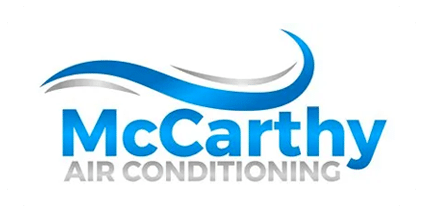Keeping your HVAC system running efficiently is crucial for maintaining a comfortable home and managing energy costs. An efficient HVAC system not only keeps your living space at the right temperature but also helps in reducing your utility bills. Regular maintenance and proper usage are key to ensuring your system functions at its best.
That said, let’s explore the best practices that will help you achieve optimal performance and efficiency from your HVAC system.
Regular Maintenance Checks
Importance of Scheduled HVAC Inspections
Scheduled HVAC inspections are essential for keeping your system running efficiently. Regular check-ups help identify potential issues before they turn into major problems. By having a professional inspect your system, you ensure that all components are working correctly and efficiently. Scheduled maintenance can extend the lifespan of your HVAC unit and keep it running smoothly, saving you from unexpected breakdowns and costly repairs. Routine inspections also help in maintaining optimal performance, ensuring your home remains comfortable throughout the year.
Cleaning and Replacing Air Filters
One of the simplest yet most effective ways to maintain your HVAC system is by regularly cleaning and replacing the air filters. Dirty filters can restrict airflow, causing the system to work harder and less efficiently. This can lead to higher energy bills and potential damage to your HVAC unit. It’s recommended to check your filters every month and replace them at least every three months. If you have pets or live in a dusty area, more frequent replacements might be necessary. Clean filters not only improve airflow but also enhance indoor air quality, making your living environment healthier.
Inspecting Ductwork for Leaks and Blockages
Inspecting the ductwork for leaks and blockages is another crucial aspect of regular HVAC maintenance. Leaky ducts can lead to a significant loss of cooled or heated air, reducing the efficiency of your system and increasing energy costs. Blockages in the ductwork can also restrict airflow, making your HVAC unit work harder to maintain the desired temperature. Regularly inspect the ducts for any signs of wear or damage, and seal any leaks you find. Ensuring that your ductwork is in good condition helps your HVAC system operate efficiently and effectively.
Optimizing System Settings for Efficiency
Setting the Thermostat Correctly
Setting the thermostat correctly is vital for HVAC efficiency. Make sure the thermostat is set to a comfortable temperature that balances energy use and comfort. During the summer, a setting of 78 degrees Fahrenheit is usually recommended when you are at home, while setting it a bit higher when you’re away can save energy. In the winter, try setting the thermostat to 68 degrees Fahrenheit when you’re at home and lower when you are away or asleep. These settings help reduce energy consumption while maintaining a comfortable environment.
Utilizing Programmable Thermostats
Programmable thermostats are excellent tools for optimizing your HVAC system’s efficiency. They allow you to set specific temperatures for different times of the day, ensuring the system operates efficiently even when you’re not home. For example, you can program the thermostat to lower the temperature when you leave for work and raise it just before you return. This reduces unnecessary energy use while keeping your home comfortable. Some modern thermostats even offer smart capabilities, learning your schedule and adjusting settings automatically to maximize efficiency and comfort.
Adjusting Settings for Seasonal Changes
Adjusting your HVAC system settings according to the seasons can significantly impact its efficiency. As the weather changes, so should your thermostat settings. In the spring and fall, when temperatures are milder, you can take advantage of natural ventilation by opening windows and using ceiling fans. During extreme weather conditions, make sure to adjust the thermostat to maintain a comfortable indoor environment without overworking your HVAC system. These seasonal adjustments help maintain the system’s efficiency and reduce energy costs throughout the year.
Enhancing Airflow and Ventilation
Keeping Vents Open and Unobstructed
Ensuring proper airflow is critical for the efficiency of your HVAC system. Make sure that all vents are open and unblocked by furniture, curtains, or other objects. Closed or obstructed vents can cause your HVAC unit to work harder and less efficiently, leading to higher energy costs and potential system damage. Regularly check each vent in your home to ensure it is open and allows air to flow freely. This simple step can make a significant difference in maintaining an even temperature and reducing energy waste.
Using Ceiling Fans to Assist HVAC Systems
Ceiling fans can be valuable allies in improving your HVAC system’s efficiency. In the summer, set your ceiling fans to rotate counterclockwise to push cool air down, helping to circulate the cool air more effectively. In the winter, switch the fans to rotate clockwise at a low speed to pull cool air up and distribute warm air throughout the room. Using ceiling fans allows you to set your thermostat a few degrees higher in the summer and lower in the winter, reducing the workload on your HVAC system and saving energy.
Maintaining Proper Ventilation Throughout the Home
Proper ventilation helps your HVAC system work more efficiently and keeps indoor air quality high. Ensure that areas like the kitchen, bathroom, and laundry room are well-ventilated to avoid moisture buildup, which can cause mold and strain your HVAC system. Use exhaust fans where necessary and consider installing an energy recovery ventilator (ERV) or heat recovery ventilator (HRV) to improve airflow. Good ventilation ensures that your HVAC system does not have to work as hard to maintain a comfortable environment, leading to greater efficiency and longevity.
Conclusion
Maintaining an efficient HVAC system is essential for comfort and energy savings. Regular maintenance checks, optimizing system settings, enhancing airflow, and promptly addressing potential issues can keep your system running smoothly. These best practices ensure that your HVAC unit operates at its peak efficiency, providing a comfortable living environment and reducing energy costs.
Neglecting your HVAC system can lead to costly repairs and a less comfortable home. By following the tips outlined in this article, you can extend the life of your HVAC unit and enjoy consistent performance. Remember that some issues are best left to the professionals, so don’t hesitate to seek expert help when necessary.
For expert HVAC services and to ensure your system runs efficiently all year long, contact McCarthy Air Conditioning. Our experienced technicians are ready to assist you with all your HVAC needs, from regular maintenance to complex repairs. Call us today to schedule your next service.




